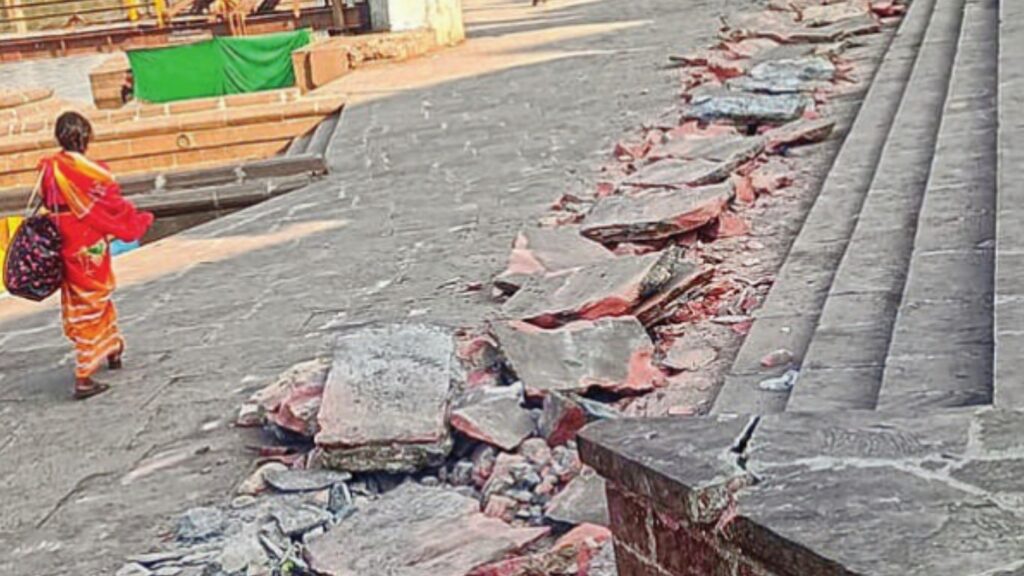A heritage ghat on the banks of the Indrayani River at Alandi, which had been built in 1988 through the collective efforts of citizens and leaders, has now been partially demolished, triggering strong reactions from locals and members of the Shri Kshetra Alandi-Dehu Area Development Committee.
Anshu Kashid
Pune | May 15, 2025: The issue was brought to light by Dr. Vishwanath Karad, Chairman of the Committee, in a press conference attended by several dignitaries, including Dr. Swati Karad-Chate, Yashodhan Sakhre Maharaj, and former Vice Chancellor Dr. S. M. Pathan. Dr. Karad expressed deep disappointment at the ghat’s demolition, alleging that despite multiple letters to Chief Minister Devendra Fadnavis, no response or action was taken.
“Unfortunately, no meeting took place, and our letters remain unanswered even after ourappeal to the Chief Minister during his Alandi visit .Now, the ghat is being destroyed without any consultation,” said Dr. Karad.
The ghat, which had withstood the test of time for over three decades, was reportedly demolished under the guise of “development work” to lay a sewage pipeline. However, critics argue that such work could have been integrated with the existing structure rather than tearing it down.
Dr. Karad pointed out that ₹14 crore had already been spent on the original ghat’s construction and beautification. He questioned whether structural assessments were done before initiating the demolition, especially since columns, beams, and precisely placed stones made the ghat both aesthetic and durable.
Yashodhan Sakhre Maharaj emphasized the lack of consultation by saying:
The sudden and unilateral demolition of the Alandi ghat raises an essential concern—how should developmental work respect cultural heritage and public involvement?
For over 30 years, this ghat has served not just as a structure but as a spiritual and cultural landmark for lakhs of devotees. When such places are taken apart without engaging local stakeholders or considering alternative solutions, it reflects a top-down governance model that overlooks ground realities and emotions.
This incident highlights the urgent need for:
Transparent dialogue between the administration and local bodies
Heritage-sensitive urban planning
Sustainable infrastructure development that works with, not against, existing landmarks
It’s time for policymakers to realize that not every project labeled as “development” truly serves the people, especially when it tramples over community-built assets without accountability.
A democratic process must involve listening, especially when the issue touches cultural sentiments and environmental planning in equal measure.Development cannot come at the cost of dignity. The state must step in, investigate, and ensure that heritage is preserved while infrastructural needs are met responsibly.
Follow Us : https://www.instagram.com/share/reel/BAcirn55Dt
Read : https://newsdotz.com/mango-madness-kids-gobble-up-fun-at-mnss-eat-the-mango-contest-in-pune/
